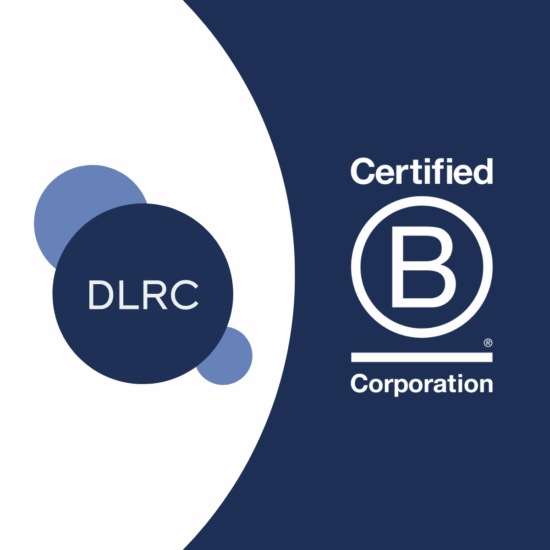Press Release: DLRC Group Becomes a Certified B Corporation
Published Dec 02, 2025
Published 29th May 2025

In a significant move towards promoting and enhancing healthcare innovation, the UK government is introducing a pioneering framework. Developers specifically designed the framework to facilitate the manufacturing of innovative personalised medicines near or at the point of care. These medicines are “point of care medicines”. Moreover, this world-first-of-its-kind initiative aims to streamline the manufacturing and regulatory processes.
This will therefore make it easier and more efficient for healthcare providers to produce these cutting-edge treatments to enable more efficient delivery to patients in need. The new framework will be implemented on 23rd July 2025, and further guidance from MHRA on this was released on 10th June 2025.
Firstly, implementation of this framework follows an update to the existing Medicines and Medical Devices Act and an open consultation held between 2021 and 2023. During this period, the MHRA asked the industry and public to express their views and proposals on how to better regulate highly personalised medicines to enable safe and efficient delivery to the patient.
The new regulatory framework will link into the current regulatory systems for medicines approvals, clinical trials, evaluation of regulatory compliance at manufacturing sites and safety monitoring.
Point-of-care medicines are medicines that can only be manufactured close to or at the location where a patient receives care, such as in hospitals, clinics, or mobile units. Manufacturers can customise point-of-care medicines for individual patients and may include advanced therapies like cell and gene therapies. In other words, point-of-care medicines are often cutting-edge medicines used to treat diseases where no other treatment options exist.
Manufacturers produce point-of-care medicines via a non-standard manufacturing route. This means that they do not manufacture these medicines at a large scale in a centralised manufacturing plant, but may produce them in very small quantities. This is often for a specific patient at a decentralised location (Decentralised Manufacture), e.g., a hospital where the patient receives treatment.
Furthermore, some of these products may only have a few hours of shelf life. As a result, this makes adhering to the current regulatory provisions for manufacturing such medicines challenging. The current regulatory framework targets the large-scale manufacture of medicinal products. This may hinder or prevent the development of point-of-care medicines.
The UK government wanted to change that and develop a novel and innovative framework that enables the manufacture of point-of-care medicines more easily. They ensured proportionate controls across the different stages of development and manufacture to retain equivalent levels of safety, quality and efficacy, currently in place for more conventional medicinal products.
The new framework centres on a Decentralised Manufacture and one Control Site, the only location named on the manufacturing authorisation. The Control Site must maintain a Decentralised Manufacture Master File, which, amongst other information, will name all the individual point-of-care manufacturing sites, and this will be the mechanism to authorise those sites of manufacture. This Control Site will oversee all aspects of the point of care manufacturing system, including the individual manufacturing locations and their activities.
The Control Site will be named in clinical trials and marketing authorisation applications. For example, the control site would be responsible for ensuring product quality and notifying the MHRA of any issues. Some of the key regulatory foundations are based on those that have successfully been in use for many years in other areas of medicine and related regulations.
The MHRA published new guidance on the 10th June 2025, which covers the following aspects of Decentralised Manufacture guidance:
Enhanced Accessibility: The new framework will enable healthcare facilities to manufacture a wider range of medicines tailored to the specific needs of patients. This will ensure timely access to personalised treatment options. We hope that these new treatments may decrease the number of days spent in hospitals.
Regulatory Clarity and Access: The framework aims to reduce regulatory hurdles by providing clear guidelines and support. This will allow for faster approval and implementation of new medical technologies.
Promotion of Innovation: The new framework is hoped to foster a culture of innovation within the healthcare sector. This will encourage the development of novel therapies and treatment methods to benefit more patients.
Future-Proofing: The framework is designed to be adaptable. This will allow future advancements in medical technology and practices to integrate seamlessly into the point-of-care manufacturing process.
Economic Impact: Streamlining the manufacturing process at the point of care is expected to reduce costs. It will also improve the overall efficiency of healthcare delivery, benefiting both providers and patients.
Benefits for Healthcare Providers: Healthcare providers will benefit from the ability to produce medicines on-site, tailored to the immediate needs of their patients. This not only enhances the quality of care but also reduces the dependency on external suppliers, leading to quicker and more reliable access to essential treatments.
Benefits to Patients: Patients can expect more personalised and timely medical interventions, which will improve their treatment outcomes. The framework promises to bring cutting-edge treatments closer to those who need them most, potentially transforming the landscape of personalised patient care in the UK.
The UK government’s introduction of this innovative framework marks a significant step in promoting the development of a wider range of point-of-care medicines. Furthermore, by enabling the manufacturing of medicines at the point of care, the initiative will revolutionise treatment development and delivery. This will pave the way for a more efficient, personalised, and innovative healthcare system.
Do not hesitate to contact our experts at DLRC for further support should you require assistance navigating this new regulatory framework. Contact us at hello@dlrcgroup.com to find out how we can support you.

Published Dec 02, 2025

Published Nov 14, 2025

Published Oct 20, 2025

Published Oct 01, 2025

Published Oct 01, 2025

Published Oct 01, 2025

Published Oct 01, 2025

Published Oct 01, 2025

Published Sep 29, 2025